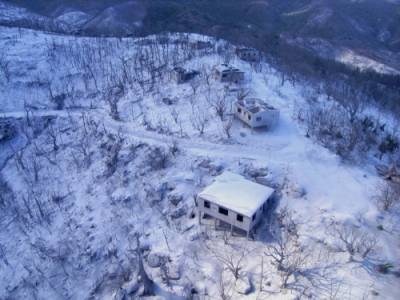Volcanic field missions allow us to explore the effects of low-impact volcanic hazards, such as ashfall, acid rain, gases, on society and infrastructure. These impacts are poorly documented and data is scarse in this field. Qualitative inquiry allows participatory work with local experts, who are best placed to describe the effects of eruptions on their infrastructure system and network. Functionality can be assessed and vulnerabilities, risk reduction measures and overall resilience of each system to volcanic hazards can be better understood. Through this process we aim to develop lessons for risk management in volcanic areas.
The volcanic field missions carried out by EPICentre researchers include:
1. Naples, Italy, January 2010. COST C26 action: Assessing the vulnerability of Vesuvian Villas to volcanic hazards.
- Detailed structural surveying of Vesuvian Villas, internal and external, in order to model vulnerability to three voclanic hazards: pycrclastic flow, ashfall, earthquake. Type of construction, condition, number of stories, evidence of retrofitting, value, use of building, regularity of building shape, internal and external detailings. Modes of possible failure mechanisms were then identitfied for each building.
2. Soufriere Hills Volcano, Montserrat, Feb-March 2010. Assessing the impacts of recent ashfalls on infrastructure systems.
3. Volcan Tungurahua, Ecuador, September 2010. Assessing infrastructure impacts, management and adaptations to erutpions (1999-2010)
4. Volcan Pacaya, Guatemala, September, 2010. Assessing impacts of the May 2010 eruption on infrastructure in Guatemala City.

Figure: Harris Lookout, Montserrat, West Indies. Houses covered in ash following the 11th February 2010 partial dome collapse of Soufriere Hills Volcano.
Sponsors: EPSRC (UCL EngD USAR), BGS, Massey University , Arup
Epicentre Staff Involved: Victoria Sword-Daniels
 Close
Close

